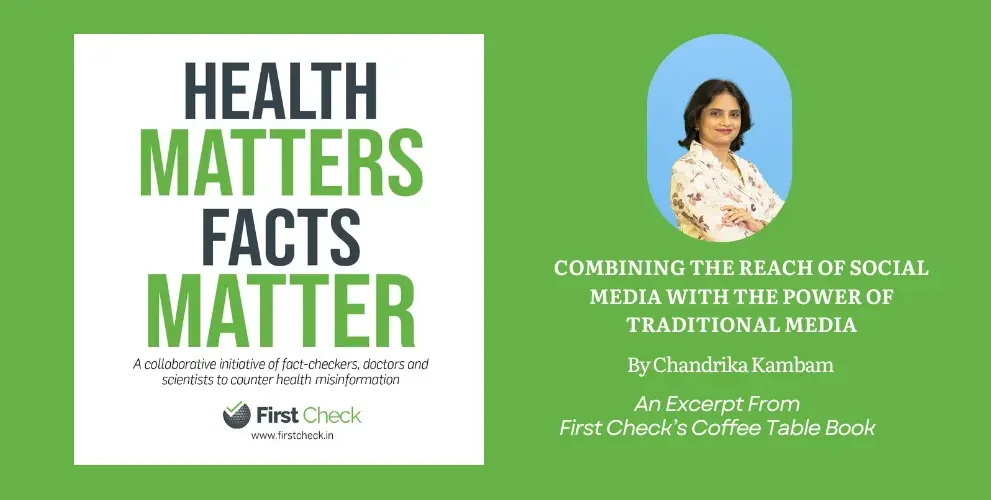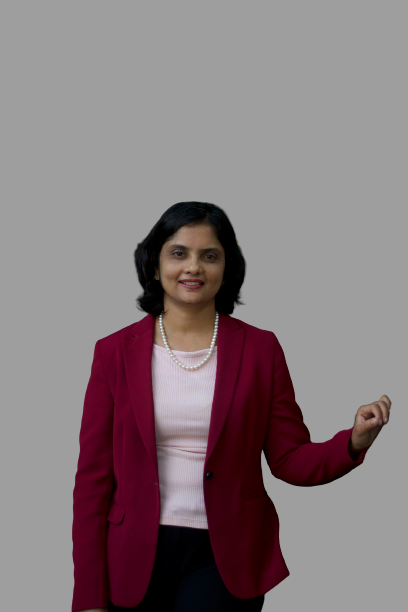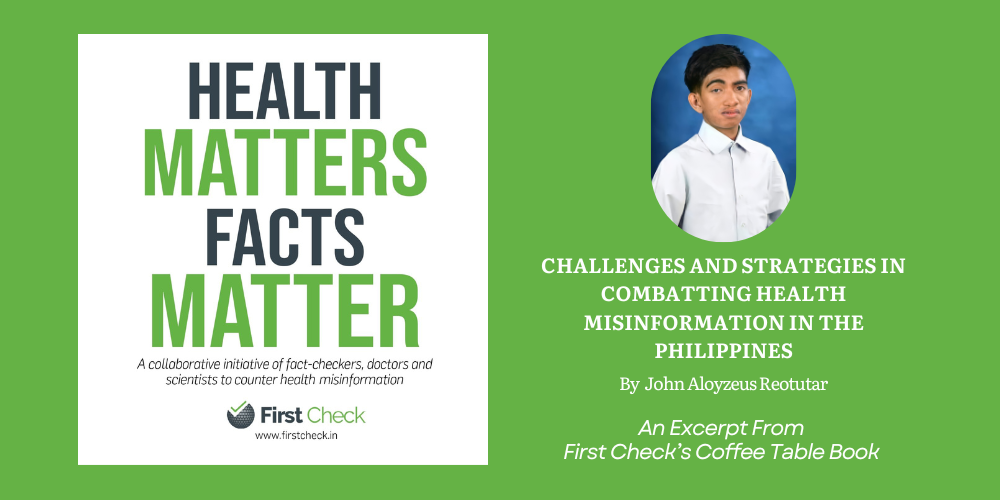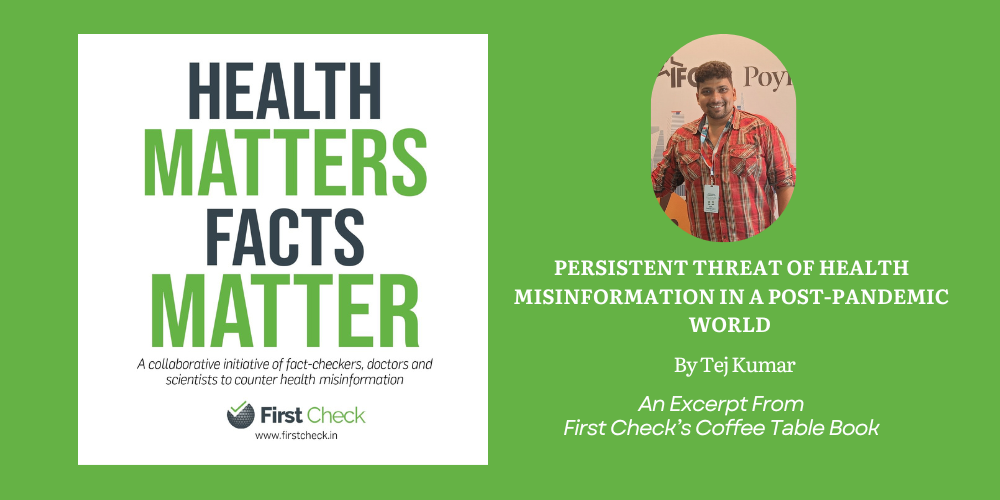Role of accredited platforms in health information – An excerpt from First Check’s Coffee Table Book
- admin / 1 year

- 0
- 2 min read

“Only accredited digital healthcare platforms with medicos on the panel should be allowed to publish health information.”
I have witnessed the healthcare industry’s transition from offline, physical information to digitisation. The evolution has, no doubt, broadened our horizons and improved access to healthcare. However, just like everything in life, this too has a downside — infodemics. An epidemic of health information, including mis/disinformation, spreading like wildfire.
This epidemic undermines and erodes public confidence in healthcare information. With time, the mistrust continues to grow. There’s another (equally disheartening) side to this story: Patients become overconfident about self-medications and routines that they may have seen online. Apart from the risk of wrong treatments and harmful practices – thanks to the endless reels and social media videos on home remedies – there are unnecessary delays in the prescribed treatment plan.
I strongly believe that only licensed healthcare professionals should be allowed to post health-related information online. Similarly, accredited digital healthcare platforms with medicos on the panel should be allowed to publish health information. Healthcare providers and online platforms must have regulations on false health claims and misinformation, with governmental support.
My experience in integrating technology with healthcare has opened new avenues for combating infodemics. Digital therapeutics, comprising online apps, can help manage patient health issues in a customised manner. The data you share with them is end-to-end encrypted and analysed by registered doctors, dentists, therapists, trainers, and dieticians. Hence, the medical advice given is authentic.
While telehealth services were instrumental in ensuring access to healthcare during the COVID-19 pandemic, it’s important recognise its untapped potential for a country like India. Remote consultations can significantly improve access to reliable healthcare resources. Just like artificial intelligence (AI) can help detect and flag health misinformation, courtesy its ability to read large datasets.
Although technology is powerful, there is no substitute for skilled media professionals who are passionate about conveying evidence-based health information. We need to encourage responsible health reporting, powered by fact-checking and robust research, in order to empower individuals and communities to make informed health decisions.
This is an excerpt from First Check’s Coffee Table Book, you can read the full Coffee Table Book here.
Dr. Chandrika Kambam is a medical doctor at Even Healthcare in India and a member of First Check team of experts.









